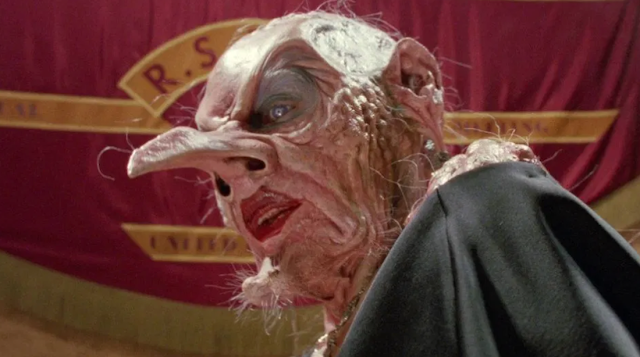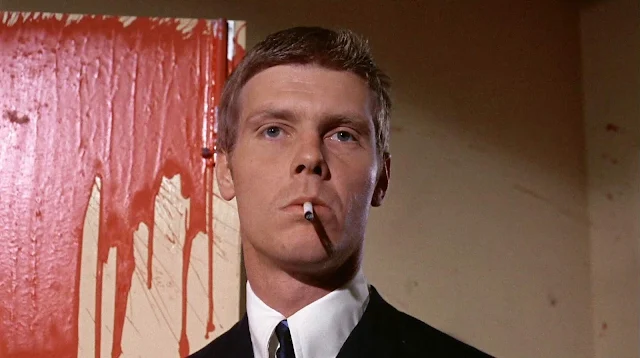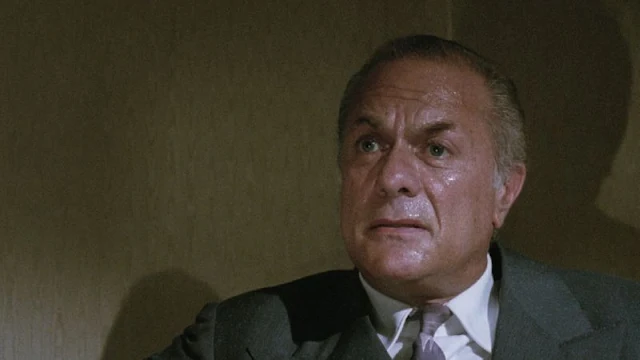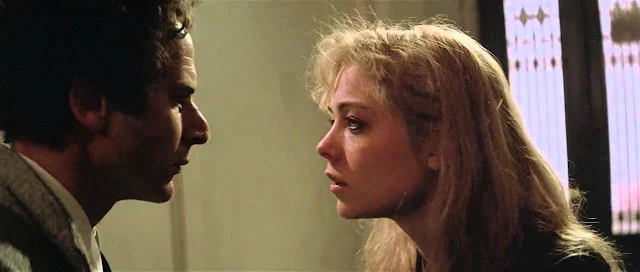 |
| Gene Hackman in Eureka |
Cast: Gene Hackman, Theresa Russell, Rutger Hauer, Jane Lapotaire, Mickey Rourke, Ed Lauter, Joe Pesci, Helena Kallianotes, Cavan Kendall, Corin Redgrave, Joe Spinell. Screenplay: Paul Mayersberg, based on a book by Marshall Houts. Cinematography: Alex Thomson. Production design: Michael Seymour. Film editing: Tony Lawson. Music: Stanley Myers.
I'm pretty sure what Nicolas Roeg had in mind when he made Eureka were those blockbuster melodramas of the 1940s and '50s based on doorstop bestsellers with a touch of scandal, like Kings Row (Sam Wood, 1942, Duel in the Sun (King Vidor et al., 1946), and Written on the Wind (Douglas Sirk, 1956). They danced on the edge of what the Production Code would allow, but Roeg wasn't hindered by that. Still, he managed to get an X rating slapped on the movie (for, of all things, violence) that was only one of the reasons Eureka was pulled from distribution and failed at the box office. It didn't receive much approval from critics, either, although today there are some who think it an overlooked classic. Gene Hackman plays a prospector who strikes it rich when he discovers gold, buys an island in the Caribbean, and has a daughter (Theresa Russell) who marries a Frenchman. That's where his troubles have compounded by the time the film gets done with the backstory of his gold strike. Everybody wants a piece of his fortune, including his son-in-law (Rutger Hauer) and the mob, headed by a gangster named Mayakofsky (Joe Pesci). The whole thing culminates in a murder and a big trial scene that includes one of the most improbable cross-examinations I've ever seen in a movie. Oh, and there's also a voodoo orgy for good measure. It's a mess, barely held together by Hackman's professionalism as an actor, but it has the kind of perverse fascination that only a movie mess possesses.






.jpg)





.jpg)




































